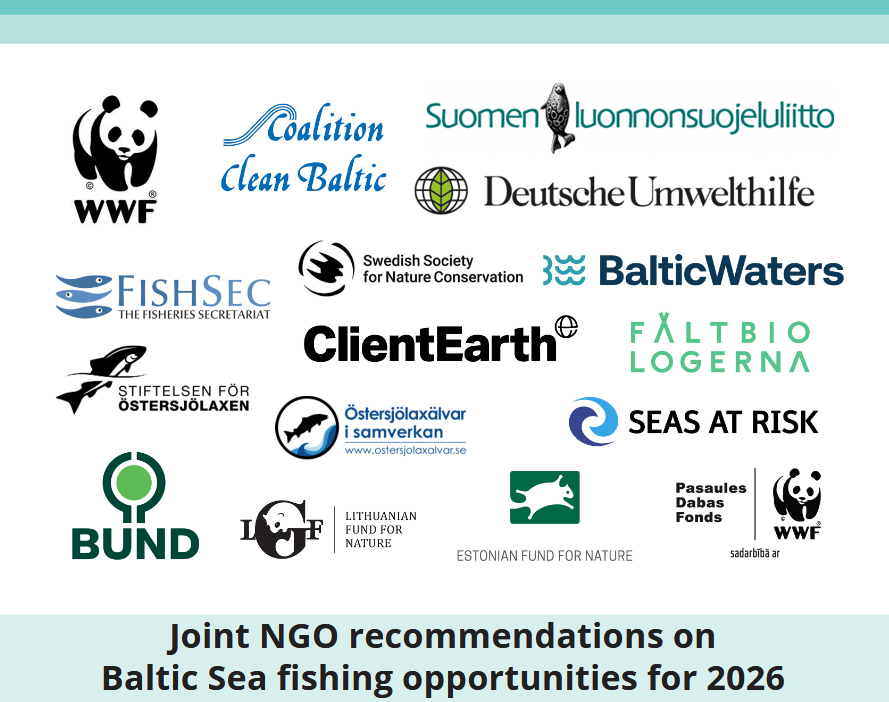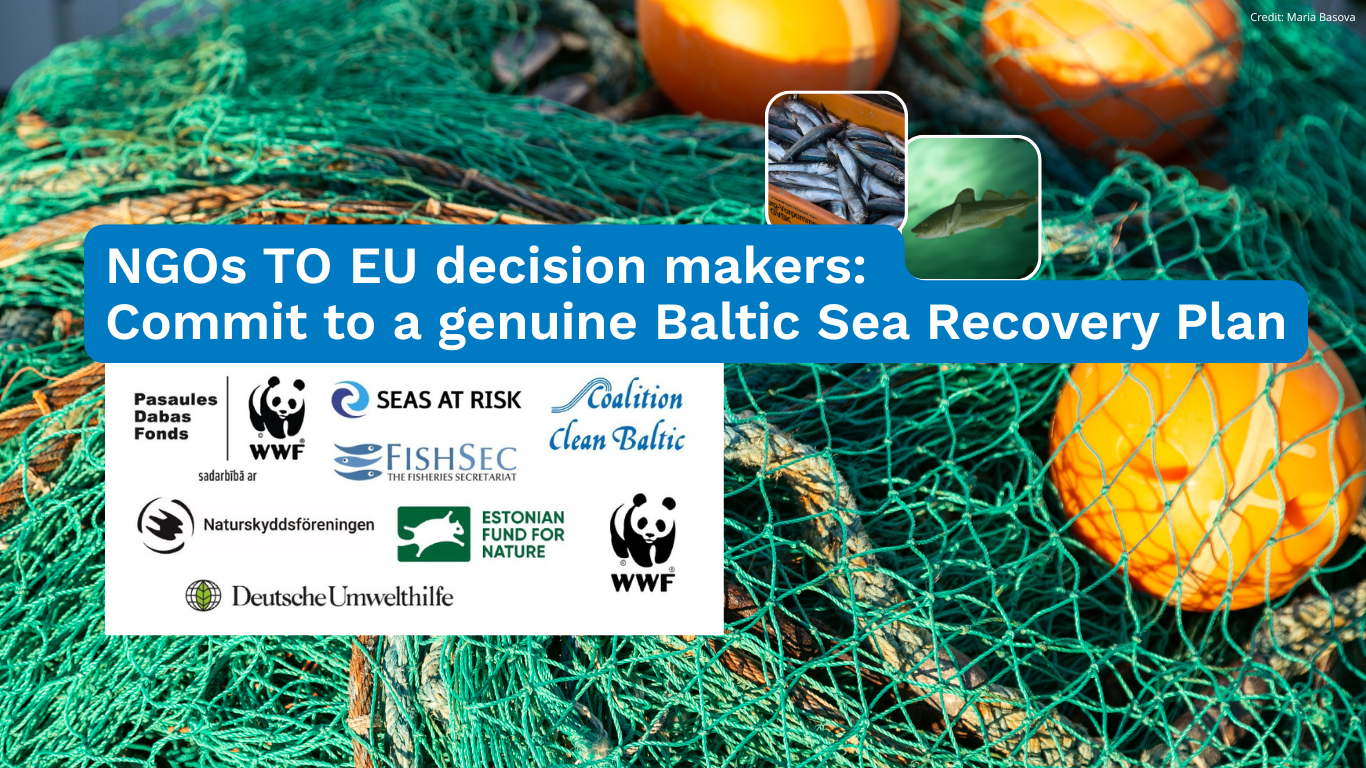CCB´s comment to Ministers’ decision on TACs for the Baltic Sea
CCB´s comment to Ministers’ decision on TACs for the Baltic Sea – Better than expected, but the major failure is the missing link between cod and main pray sprat
The annual policy cycle for setting fishing limits for the 2020 fishing year in the Baltic is concluded. The Commission’s TAC (Total Allowable Catch) proposal, this time almost in line with the joint NGOs proposal, set the scene for the Fisheries Ministers Council meeting in Luxembourg on the 14th of October
.
CCB acknowledge and applaud that the Ministers and the Commission have taken a big step toward their own responsibility to provide sustainable fisheries with the agreement reached.
The final outcome of the Council meeting was better than expected
. Several TACs were kept fully in line with the rules in place and scientific advice. The Ministers maintained the current closure on the eastern Baltic cod fishery, only allowing limited bycatch of this cod stock in other fisheries.
Ministers also reduced the western Baltic cod TAC significantly. Both the western and eastern cod stocks are in deep trouble. While Ministers are beginning to appreciate the gravity of the situation, they failed to fully appreciate scientific advice.
The western herring TAC was advised to be zero due to a vulnerable stock situation, and we are disappointed that the Ministers did not adhere to this advice. The salmon TAC as well was set to high, but if the proposed measures to reduce illegal fishing are effective then the end result may be an improved situation for many weak salmon stocks in the Baltic
commented Nils Höglund, CCB Fisheries Policy Officer.
There was in CCBs view only one major failure: the sprat TAC and lack of ecosystem considerations linked to recovery of the closed eastern Baltic cod fishery . Scientists have repeated for years that cod are starving, with steadily deteriorating body conditions, and that the sprat is a key component in the cod’s diet:
CCB and collaborating NGOs have called for spatial management of the sprat fishery or a dramatically reduced sprat TAC, to allow more food availability for cod recovery. Not only did Ministers not manage to add spatial management provisions to the sprat fishery in support of cod recovery, but they actually agreed to raise the sprat TAC above scientific advice and the Commission’s own proposal
added Nils Höglund.
CCB underlines that there is little point in stopping a cod fishery if the remaining fish will starve
.
We must make a concerted effort to appreciate the needs of a fish population within an ecosystem to support fishery recovery and sustainability. Single-species fisheries management driven by TACs alone is too limited. We must dare to move away from this tired exercise and work cross-sectorally.
On a general note, CCB must remind about the unacceptable way these “negotiations” about our ecosystems health takes place behind closed doors. Citizens cannot hold any politicians accountable because of this lack of transparency.
Links:



